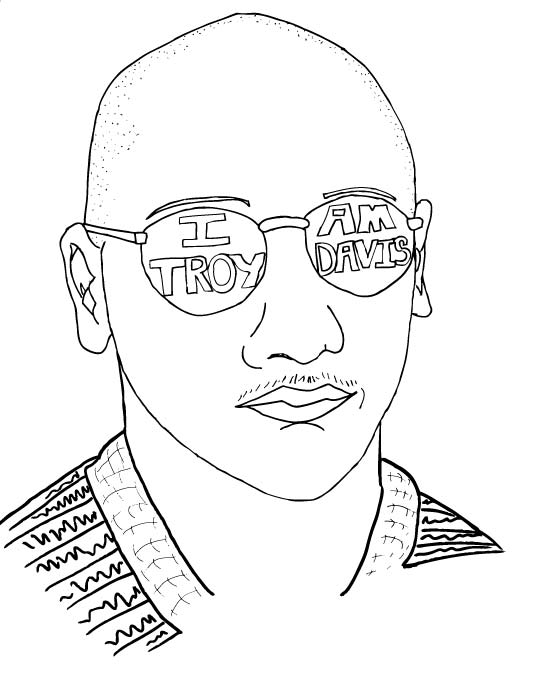Troy Davis: What Happens Now?
In last winter’s issue of AWOL, I wrote an article on how AU professors have been involved in Troy’s case. With the help of Professor Gemma Puglisi, I was able to interview Troy by mailing him questions, which he answered articulately and insightfully. I was impressed by the wisdom in Troy’s letter to me, which was free from any bitterness or frustration.
They say that one of the functions of incarceration is rehabilitation. We sometimes hear about convicts who turn their lives around, find religion or start mentoring others. Take for instance the story of Stanley Tookie Williams, convicted killer and founder of the Crips gang who was executed in 2005 despite his efforts behind bars to keep children from joining gangs. Troy himself mentored troubled kids by being a pen-pal, and he had plans to continue mentoring youth once out of prison. It’s clear that he was using his time in prison constructively – but calls for his execution still rang loud and clear.
I am still in shock over Troy’s execution. I began my college career with blind faith in our country’s government and court system, sincerely believing that justice would be served for Troy Davis. Three years later, I have become aware of just how flawed government can be.
In the aftermath of the horrific display of the American justice system gone wrong, we can only hope that Troy’s death was not in vain. All that’s left is the hope that his story starts the national and global conversation on the danger in inflicting the irreversible punishment of the death penalty.












